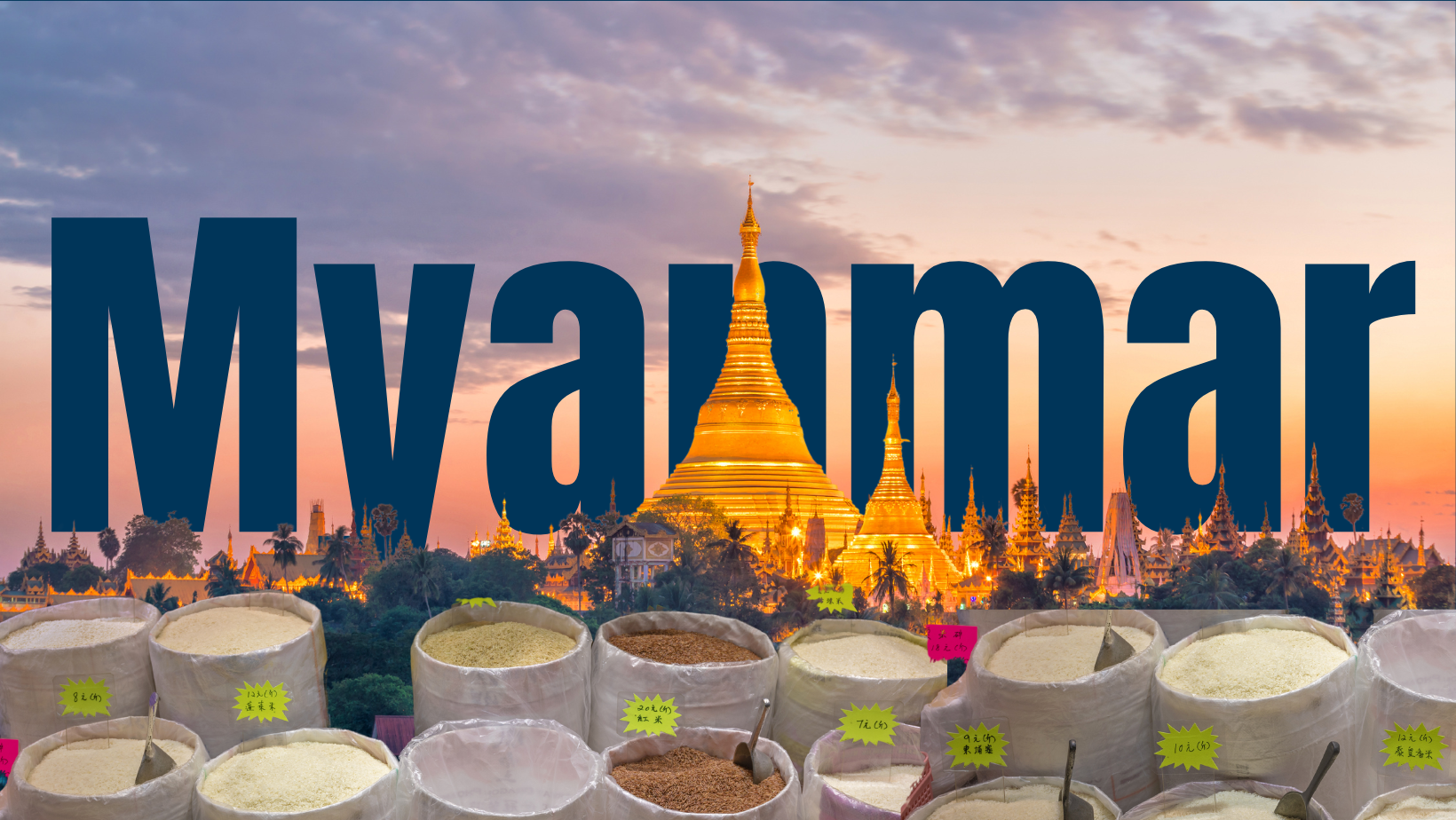
Myanmar’s rice export industry is a cornerstone of the nation’s culture and economy. As the world’s 8th largest rice exporter, A recent visit to a rice mill offered a glimpse into this dynamic world, where tradition and technology seamlessly intertwine to produce high-quality rice for global markets.
Exploring Myanmar’s Rice Export Market:
Our visit to a rice mill in Myanmar opened my eyes to the immense potential and significance of rice export in this region. From the moment we set foot inside the mill, it was evident that rice isn’t just a commodity here—it’s a way of life, deeply ingrained in the fabric of Myanmar’s culture and economy.
Myanmar’s rice industry is in a phase of expansion, driven by a relentless pursuit of quality and innovation. The mill we visited was a hive of activity, with modern machinery humming away tirelessly to process and package rice for export. What struck me the most was the seamless integration of tradition and technology, with traditional milling techniques complemented by state-of-the-art missionary machinery.

Meeting Mr. Willie, a third-generation entrepreneur at the helm of his family’s rice milling business, was truly inspiring. His pride in continuing his family’s legacy was palpable, as was his commitment to upholding Myanmar’s reputation for producing top-quality rice. Mr. Willie’s insights into the export market shed light on the global demand for Myanmar’s rice, extending far beyond Southeast Asia to European markets and beyond
.Myanmar’s rice export industry is more than just a business—it’s a lifeline for countless farmers and families across the country. With its fertile lands and favourable climate, Myanmar boasts an abundance of rice varieties coveted by markets worldwide. From long-grain to broken rice, each variety tells a story of centuries-old traditions and modern agricultural practices working in harmony.
The use of water transport, as we witnessed firsthand, speaks volumes about the resourcefulness of the industry in overcoming logistical challenges. By harnessing the power of rivers and seas, Myanmar’s rice exporters are able to efficiently transport large quantities of rice to international markets, ensuring freshness and quality every step of the way.
The journey of Myanmar’s rice from farm to table is a testament to the country’s rich cultural heritage. Farmers across Myanmar cultivate rice using age-old techniques passed down through generations, imbuing each grain with a sense of history and tradition. These grains then make their way to bustling rice mills, where skilled workers carefully process and package them for export.
Myanmar’s rice export isn’t just about delivering a product—it’s about sharing a taste of Myanmar’s culinary heritage with the world. From fragrant jasmine rice to hearty long-grain varieties, Myanmar’s rice offerings are as diverse as the country’s landscapes. Whether enjoyed as a staple in Asian cuisine or as a gourmet delicacy in fine dining establishments, Myanmar’s rice leaves a lasting impression on palates around the globe.
If our blog is unclear, no need to worry – feel free to watch this video Secrets featuring an exporter with over 10 years of experience for a clearer understanding.
In conclusion, Myanmar’s rice export industry is not just about shipping grains across borders—it’s about sharing a piece of Myanmar’s rich heritage with the world. From the farmers to the millers to the exporters, each individual plays a vital role in ensuring that Myanmar’s rice reaches every corner of the globe. As we bid farewell to Myanmar, I’m left with a newfound appreciation for the passion, resilience, and innovation that define this dynamic industry. May the grains of Myanmar rice continue to nourish bodies and souls far and wide, bridging cultures and communities with every bite.
Looking for more understanding on Rice Trade: How to Maximize Space and Minimize Costs in Container Loading?
Do Follow us on Our Social Media channels to stay ahead in your rice business.
